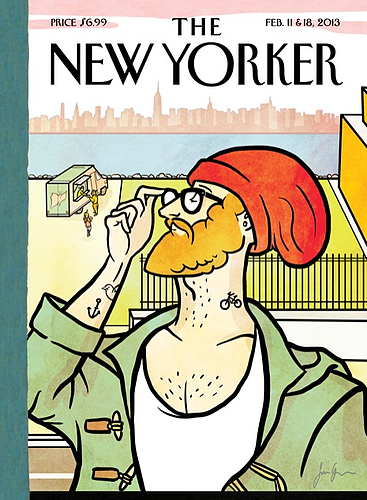
This is what Ezra Pound would have thought of MFA programs.
Here's a statistic that blew my mind back in late 2010, when I was just under a year into my first novel: in 1975, there were 79 creative writing graduate programs (in other words, MFA programs) in America. Today there are 854.
To be honest, it still blows my mind. Creative-writing MFA's are generally two-year programs which cost an average of $80,000, and I can barely think of a degree out there with a more pathetic return on investment. There are not more than a handful of truly prestigious ones (Iowa, Vanderbilt, Michigan), and even when there were just 79 of them, they weren't all good). They are no guarantee of publication or representation. The chance of paying off those immense loans is minimal. And yet, young writers are flocking to them like seagulls descending in a dirty white blizzard on a school of hapless fish.
Part of this has to do with the fact that graduate school, for many people, has become de rigeur—a B.A. doesn't count for much these days. So why should it be any different with writers? If everyone else is going to grad school, why shouldn't we? And I have to admit, MFA's do offer many of the same advantages as other graduate programs, namely:
-
A network of peers capable of giving references and support.
-
Enhanced exposure to established writers and mentors
-
An immersive critical environment in which to hone talent and develop writerly habits (or what my mother would call “sitzfliesch.”)
-
A limited biographical legitimacy when submitting stories and queries.
-
Recommendations of professors.
-
Increased competitiveness and salary for teaching jobs
I'll concede that when you look at it like that, it's not a bad proposition (especially if you can get into one of the better ones). And given the 1000% increase in these programs over the last forty years, it's fair to conclude that a lot of people felt the same way.
And yet.
A lot of these things—in fact, all but the last—can be obtained with talent, hard work, and intransigence. The MFA sells something that is toxic to good art: the idea that success can be attained more easily. Whatever literary success means to you, achieving it requires endless false starts, stalls, failures, rejections, tears, self-loathing, insomnia, bargaining with God, and berating the cat. And those are the productive days.
The point is that anyone who promises a smoother road is selling snake oil. This is especially true for young (early-to-mid-twenties) writers. No one should go directly from college to an MFA program—you'll have exactly nothing to write about when you get out! (This accounts for the recent rash of truly dismal navel-gazing narratives coming out of the Brooklyn literary world, in which overeducated ephebic twentysomethings stagger through the naked streets at dawn looking for a Whole Foods, because they are out of seitan.)

“But won't an MFA help me get published?” you ask.
Maybe. But you know what really helps you get published? Being a good writer. It's entirely likely that the people who slot their writing into The Filbert Review or Gilded Marimba or whatever random journal accepts their latest short story would have gotten there entirely on their own merit (the same way they got into the MFA program). I'm not being facetious when I say this. All literary agents will tell you that the only criterion they use when deciding whether or not to offer representation is whether or not the writer has written a good book. Granted, a good query letter is essential to getting the agent to read your manuscript in the first place, as is making sure you target the right agents, but no agent on earth will ever say, “eh, this MS is limp, but the guy's got an MFA and has sold a story to Chump magazine, so I'll give it a shot.” What they will say, however, is: “I don't know who the heck this woman is—she's never even been to a conference, much less a graduate programs, and her degree was in statistics—but this is a great MS. I must have her!”
Lastly, one of the great hazard of graduate writing programs is their tendency to focus on certain types of fiction, specifically the short story and its masters (Barth, Barthelme, Boyle, O'Connor). They also tend to teach very specific, highly-academic writing styles, which may or may not sound anything like yours. If you want to find your voice, an MFA program is a bad place to start. It's worth noting that perhaps the most commonly-taught author in all writing programs, the iconic Raymond Carver, is famous for his spare, haunting style (the two most mercilessly abused adjectives in criticism). But that style was less his doing, than that of his editor, Gordon Lish, who slashed up to 78% of the words out of Carver's stories. And for what it's worth, Carver so hated the graduate program at Iowa that he dropped out before completing half his credits. David Foster Wallace hated his MFA, too.
So here's my overall view of MFA's (and I say this knowing full well that my agent has one, and it's made her a terrific editor):
-
They're a wonderful charity for small liberal arts colleges, which get to charge enormous amounts of tuition with minimal overhead.
-
They're a splendid sinecure for competent, devoted, important, yet non-commercial authors, who can earn a decent paycheck without compromising themselves (though they usually have to live in places like Syracuse).
-
The only people who lose out are the students, who are putting themselves into lifelong debt in exchange for an education they could have got with a library card and a Twitter account. (apologies to Good Will Hunting)
So is it right for you? It's up to you. The point I want to make here is simply that no one needs an MFA. It might help you, might focus or train or refine or even broaden you. You may find the idea of a two-year writing program enormously pleasurable. It may pay dividends in terms of publication in journals and getting invited to parties (I'm not dissing parties; they're crazy important). But that doesn't mean you need it.
Comments